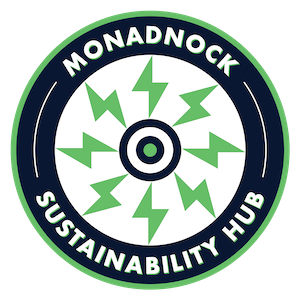By Gerald Burns, Monadnock Sustainability Hub
Originally Published in the Monadnock Shopper News
Quick quiz: What do the letters IPCC stand for? No matter if the Intergovernmental Panel on Climate Change doesn’t come immediately to mind. It’s more important to realize what this UN-sponsored group of scientific experts has been doing for over thirty years: advising policymakers and the public on all matters relating to this pressing global issue. While the IPCC’s contributions have been substantial, not only on the international but the local level, its signature “Assessment Reports” have been targeted for criticism and do have their limitations. This month’s column assesses the Assessments.
Let’s begin with the contributions. The early work of the panel, in calling attention to global warming and measuring its extent, laid the groundwork for the first UN conferences in the 1990s and won for the IPCC a share of the Nobel Peace Prize in 2007. A later Assessment Report drew a famous line in the mercury, declaring that any rise in the earth’s temperature of more than 1.50C (2.70F) could lead to catastrophic results by the end of the current century. This warning found acceptance in the Paris Agreement of 2015, where nations promised to reduce their carbon emissions enough to meet the demanding new goal. Then in a Special Report three years later, the panel effectively attached a ticking clock to the task: slash emissions in half worldwide by 2030, and achieve “net-zero” by 2050, or miss the chance at 1.5.
This last call rang out beyond the circles of scientists and UN diplomats. “We’re almost out of time!” one journalist wrote of the “extraordinary and alarming” report: “What to do…?” The echoes reached even to local communities. In our area, both Keene and Peterborough have set the target of a 100% transition to clean sources of electricity at 2030 and those for transportation and heating at 2050, clearly reflecting the Special Report timetable.
As with any large and complex effort, however, the IPCC’s reporting has come under fire from various directions. Apart from objections on scientific or pseudo-scientific grounds and from those who reject science altogether, challenges have been raised on the grounds of method: the IPCC’s reliance on reviews of existing studies rather than original research, for example, or the flattening effect on its findings of having to run them by its 195 governmental clients.
Lately, another reservation has surfaced, this one a matter of psychology. According to a new book by Katharine Hayhoe, the IPCC reports, along with much climate messaging, may be too “alarming.” Fear is a necessary but not a sufficient motivator to decisive action; it can lead as easily to feelings of despair and helplessness. What is needed in the face of the climate crisis is not only deep concern but the confidence that together our efforts can produce results once thought unreachable. Back when who would have believed that society’s smoking habit would largely be kicked? Now, why shouldn’t we believe something similar can happen with carbon emissions?
Happily, the new Sixth Assessment Report contains a discussion of climate accomplishments that give hope for the future. Growing supplies and falling prices of clean energy, more sustainable land practices, and certain measures aimed at curbing fossil fuel use appear to have slowed the rate of increase in emissions over the last decade. These trends, if backed by the fulfillment of national pledges made at the 2021 Glasgow conference, suggest that the temperature rise by century’s end can be held, if not to 1.5, then to less than 20C.
Unhappily, indications are that many nations, including the U.S. (at least until Senator Manchin’s recent turnaround), are not taking the steps needed to meet those pledges. Emissions will continue to edge up, not plunge, through the 2030 deadline. This state of affairs points to the truest limitation of the IPCC’s work. The distinguished assessments are only reports. They rely for implementation on governmental bodies, for whom promises geared toward the future are easy and policy changes in the present hard.
So, “What to do?” for the seven in ten of us who, according to a recent survey, feel a “personal sense of responsibility” to help reduce global warming? Let’s stay focused on this “ticking” challenge without turning a blind eye to other pressing crises and concerns in our world. Let’s stay local, where for the moment, results appear more reachable than at the national or international level. (This is a plug; see the website below for ongoing Monadnock Sustainability Hub programs.) Above all, let’s stay the course, looking to the IPCC reports for reliable scientific guidance and motivation, both alarming and encouraging, to effective climate action.
Author Bio
Gerald Burns is a member of the board of the Monadnock Sustainability Hub. He helped to found the Institute for Climate Action at Franklin Pierce and participates in the Citizens Climate Lobby, the Marlborough Energy Committee, and Fridays for the Future.

